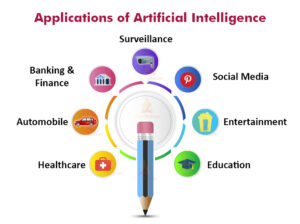Debate #6: AI technologies will revolutionize education for the better
This week was a fun one, if only because this is one topic that I’m really not sure about. And the reason for that? AI at this level is so new, that we honestly don’t have the information needed yet to determine what the impact is going to be on students and education. Is AI going to revolutionize education? I think that’s a given. We already have students accessing these different sites and generators, and teachers scrambling to try and figure out what to do about it. Is it going to be for the better? That’s the part I am not sure about.
Rokhsareh and Hanieh opened with the agree side of things, and presented a number of compelling arguments. A lot of it looked at how AI can be used to support what is already happening in classrooms, both in terms of diversifying learning, and helping to lighten the marking/feedback/planning load. Now, it was at this point I went down a rabbit hole a little bit, trying to determine just what AI was. When I think AI, I think I, Robot and Terminator, ChatGPT and DALL-E. I think of something that can analyze data, or simulate human abilities or decision-making. But apparently that’s only part of AI. So I did a little digging, and I found some more information to help me make some decisions regarding this particular debate.

PwC’s “Artificial Intelligence and Robotics – 2017” broke down their look at AI, which jivved with what I was thinking. But when I dug into it a little bit more, to look at what we’re already using that’s considered to be AI, I was actually quite surprised with what I found.

For example, according to TechVidvan, did you know that in addition to the more advanced examples of AI (see video below), smart assistants like Alexa, Siri, and Google, your smart watches, tech that uses facial recognition, Netflix and Amazon Prime (which cater based on your watched and liked selections), AutoPilot in vehicles, and more, are all examples of AI?
Crazy, right? Anyway, after I went down the rabbit hole, my understanding of the debate changed a little bit.
While I have some of the same concerns as George and Kanwal, especially when it comes to ChatGPT, when we look back at our responses historically to new technology, I feel like “new” is always met with a certain amount of skepticism and resistance. Aki Peritz’s article “AI Is Making It Easier Than Ever for Students to Cheat” has one quote about how a class with paper and pencil won’t have to worry about AI interference, and I was actually surprised to find myself a bit outraged on the behalf of students. It’s only in the academic world where we’re ever restricted to paper and pencil, and told to sit and write something (unless you’re an author, and even then you could argue that everything a person has read influences their own writing). How are we preparing students if we aren’t showing them how to use these tools? As daunting as it may initially seem, maybe it’s worth taking a look at the kind of assignments we’re giving our students if we’re concerned about them using AI. I already do some in-class work, to avoid plagiarism issues, and there are things that won’t change because of things like ChatGPT. But for other assignments, maybe it’s time to pivot and learn how to integrate AI so that students can see how to use it mindfully, and purposefully.
I loved John Spencer’s “Human Skills in a World of Artificial Intelligence” as he looks at this very issue. He states that “the best way to prepare students for the future is by empowering them in the present. When this occurs, students develop those critical human skills that they will need as they navigate an uncertain future.” And as long as that’s happening, isn’t that what education is all about?
I guess, when we look at what this boils down to, of course I’m nervous about some of these changes that are rolling out (and so fast!). But so are most people when change occurs. I’d rather learn about it, and how to integrate, though, than try to shut it out.
Hi Brittany, thank you for your great post! I am also nervous about the changes technology could bring. Things are also happening so fast! I feel the same as you, that I would rather learn about it than shut it out. History says that people felt this way when the printing press was first invented!
Hello Laura and Brittany! I came to say essentially the same things. I, at times, feel overwhelmed with the rapid pace in which technology is expanding. I suppose all that we can do is hold on tight and try to keep up the best we can!